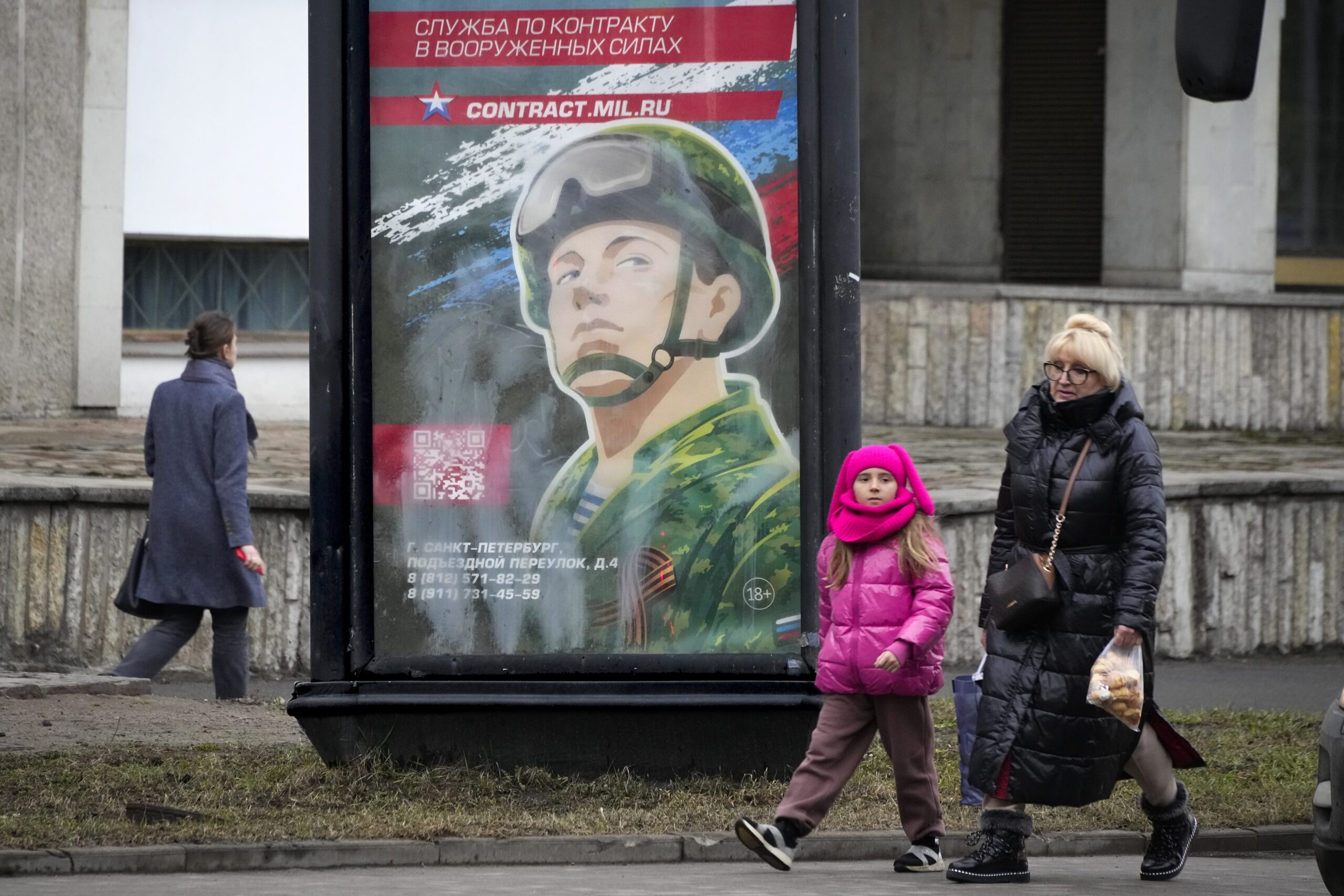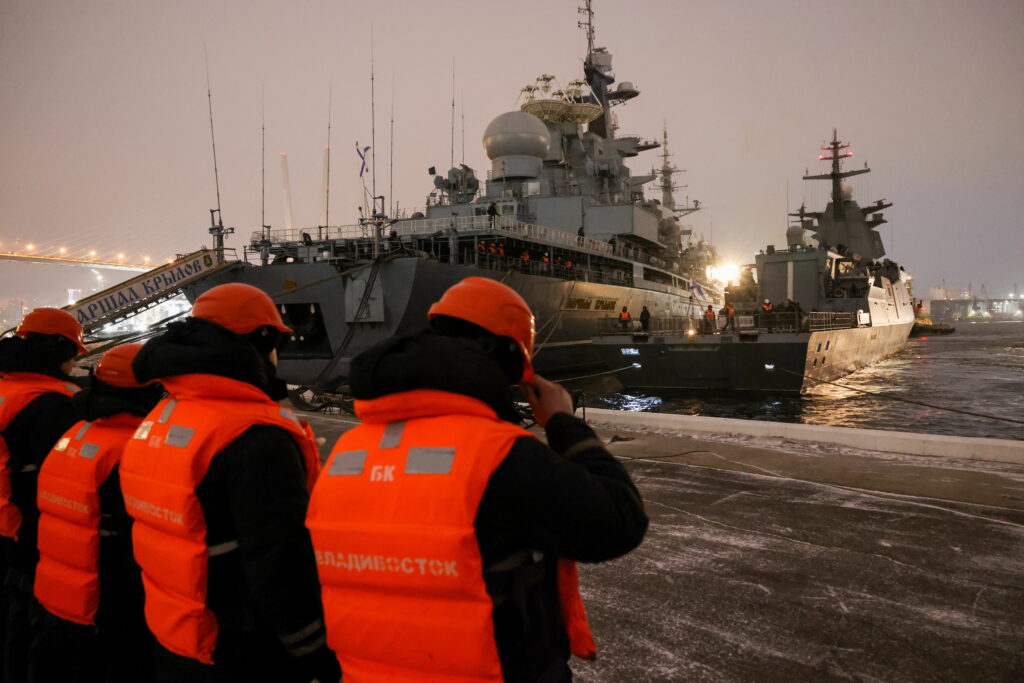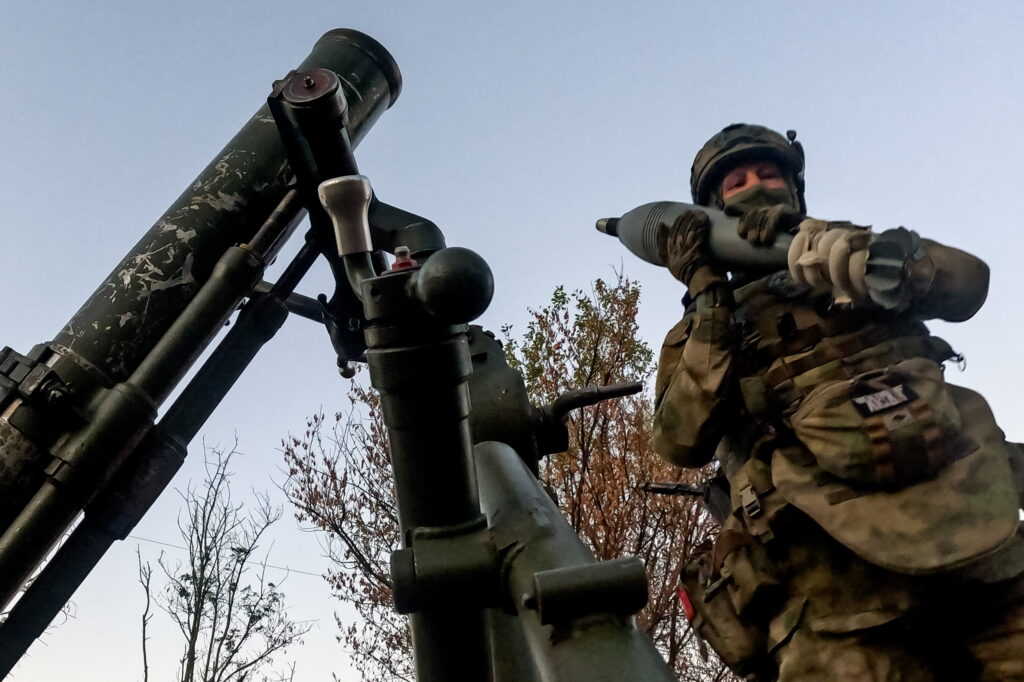The start of 2023 was marked by loud statements made by federal politicians and parliamentary parties about the need to involve those currently fighting in Ukraine in the elections. This rhetoric was used not only by «United Russia», but also by the bulk of the parliamentary opposition: the Communist Party, the Liberal-Democratic Party and «Just Russia.» Only the «New People» party seems to have chosen to stay away from it all, trying to soften their rhetoric as much as possible and cautiously calling for some kind of normalization.
Currently, «United Russia» is holding primaries for the September regional elections. Party representatives have stated that primary and city branches will seek to actively involve combatants in their party work, both at the grass-root level of supporters and as participants in primaries. In Tyumen, the youth wing of the «United Russia» — known as the «Young Guard» — has launched a project to help «special operation participants and volunteers» in preparation for the preliminary voting and the fall election campaign. Sergey Turchak, secretary of the party’s general council, announced the other day that some 100 returned servicemen or volunteers the «special military operation zone» had been participating in the «United Russia» humanitarian mission and had already applied to participate in preliminary voting.
A hundred is not a lot of people, bearing in mind there will be several thousand election campaigns in September, of which about fifty will be large-scale. Of course, this number is bound to grow, but we should not expect an influx of real fighters.
First of all, some of them are simply not eligible to run. This primarily concerns those who were recruited from prisons. One may assume it is mostly convicts with long prison sentences for violent crimes who volunteered to go to the front. The electoral law forbids such persons to run in an elections immediately after release. To run for an office an ex-felon must meet two conditions. First, the criminal record must be expunged or removed from official records and sealed from public view: felonies are expunged within eight years, and especially serious felony offences are expunged within ten years (in theory, clemency, of course, can include a separate provision stating that the criminal record is expunged from the date clemency is issued). Secondly, after a criminal record is expunged, a certain amount of time must pass before a person regains their passive suffrage: for those convicted of felonies, the waiting period is 10 years, and for particularly serious felonies articles, it is 15 years. Accordingly, even if current combatants have their convictions expunged upon pardon, they will not be able to run for any public office until 2032.
In the case of professional servicemen, one should not expect an influx of those willing to be elected into a public office. There are very few people in the Russian army who have political ambitions or resources to participate in elections. Even among senior officers such people are rare. Superiors will not allow junior officers to nominate themselves — unless, of course, they are instructed.
Regular politicians will turn into «veterans»
Traditional politicians, both those with long-standing reputations in the regions and young careerists alike, are currently stressing the need to draw war veterans into the electoral cycle. As a result, MPs, bureaucrats, and members of «Young Guard» have been actively enlisting to go to eastern Ukraine. Some enlist in military formations or even create their own. According to some media reports, there is a whole squad of MPs and officials in the «Cascade» unit. Deputies of the State Duma are allegedly fighting in it: 54-year-old Dmitry Sablin, 51-year-old Dmitry Khubezov, 52-year-old Sergei Sokol, 54-year-old Oleg Golikov, 54-year-old Oleg Kolesnikov and 46-year-old Yevgeny Pervyshov. A 49-year-old MP Vitaly Milonov is also said to be in the combat zone.
In February, Vladimir Gromov (Communist party), a 47-year-old member of Altai Krai Legislative Assembly, announced his decision to go to eastern Ukraine, and in late March a similar statement was made by the 44-year-old mayor of Vorkuta Yaroslav Shaposhnikov. According to Shaposhnikov, five more people from the city administration volunteered for the front. Andrei Chernov, 43-year-old speaker of the Duma of the Udmurt town of Mozhga, Alexander Panko, 51, member of the Irkutsk City Duma, Azat Badranov, 36, Deputy Prime Minister of Bashkortostan, and Vyacheslav Novokreshchenov, 42, deputy of the Irkutsk District Duma, have been to the front zone and have since come back. The latter has already applied to participate in the «United Russia» straw poll in view of the upcoming elections to the Legislative Assembly of the Irkutsk region.
The First Deputy Chief of Staff of the Presidential Administration Sergey Kiriyenko, Sergei Turchak, and the head of Yakutia, Aisen Nikolayev have been to the frontline areas on working trips. Even Sergey Sobyanin, the mayor of Moscow, who tries to keep a distance from the war, had to visit Luhansk. However, most politicians travel to the occupied Ukrainian territories in order to bring humanitarian aid. For example, in early March, Sergey Tikhomirov, member of the Novgorod regional Duma representing the Communist Party, brought a humanitarian cargo to Luhansk Oblast for servicemen called up for mobilization from Novgorod Oblast. In late February, Chairman of the Novgorod Regional Duma Yury Bobryshev and Human Rights Ombudsman for the Novgorod Region Anatoly Boitsev travelled to that region, too. The «Young Guard» and members of the Society.Budushchego [Society of the Future] movement of the Moscow nationalist politician Roman Yuneman also accompany cargos of humanitarian aid to the occupied territories of Ukraine.
Some of them don’t even bother to personally travel to the war zone, but simply collect and send there their parcels. One example of that would be Alexei Vikharev, member of the Yekaterinburg City Duma. There are also those who have only an indirect relation to the military hostilities, for example, relatives of the mobilized. For instance, one of the first participants of «United Russia» primaries was Yulia Domashevskaya, wife of a mobilized resident of Irkutsk, the deputy head of regional office of Committee of families of soldiers of the Fatherland. She applied to participate on the first day of the primaries.
Hoping for a reward for loyalty or absolution of one’s sins
One would expect the topic of participation in military operations and other efforts to assist the front to become one of the main buzzwords in the upcoming election campaign. In fact, however, even last year candidates in the regional and local elections shied away from raising foreign policy issues. Now the primaries in the cities are also practically invisible: the campaigning is subdued and there is but a handful of publications covering the topic in the media. Public attention to these elections is minimal; they essentially remain the same bureaucratic procedure that they turned into a few years ago.
To some parties, though, such demonstrative support of the authorities constitutes a problem. The Communist Party suffers the most, as it has lost a significant portion of support from the protest electorate with its approval ratings plummeting to the level of the Liberal-Democratic party, although just a year and a half ago it could successfully compete with «United Russia».
In general, the «Just Russia» party is undergoing a very painful transformation, which results in frictions and splits in its ranks. For example, the St. Petersburg parliamentary faction, which had probably been the strongest party cell in the country, left the party in early April. The reason — the fraction did not support Sergey Mironov’s move to cozy up with Yevgeny Prigozhin and his excessively bellicose rhetoric.
The real purpose of conspicuous participation of parties in Russian politics in the occupied territories is not to acquire votes (we see that the result is rather the opposite of what has been intended), but solely to demonstrate their loyalty to the Kremlin. The main objectives are either to boost one’s career prospects or to receive absolution for one’s past sins.
Thus, Vladislav Kuznetsov, first deputy prime minister of the Luhansk People’s Republic, and former deputy governor of the Kurgan region, and Vitaly Khotsenko, former prime minister of the Donetsk People’s Republic and ex-minister in the government of Stavropol Krai both received new appointments: Kuznetzov was moved to Chukotka while Khotsenko was sent to Omsk oblast’ where he replaced Alexander Burkov («Just Russia»). The above-mentioned Sergei Sokol, recently awarded the Order of Courage for his participation in the special military operation, is a contender for the post of the head of Khakassia. In June, he is supposed to compete for this office against the current Communist governor Valentin Konovalov, who also had to make a trip to Luhansk just to tick all the necessary boxes.
Many politicians go to eastern Ukraine to avoid punishment or to expiate some «transgressions» or failings in the eyes of the authorities. For example, Galina Alupova («United Russia»), a member of the Karelian Legislative Assembly, was the chief physician at the central regional hospital in Medvezhyegorsk, which was searched in connection with a criminal investigation of false «coronavirus» payments. Alupova went to the occupied territories to work as a doctor. Rustam Abushaev, the former head of Bolshoi Kamen’ of Primorsky Krai, who was on the federal wanted list, had fled to the front the day before his offices were searched. He was charged with large-scale land fraud and illegal entrepreneurship. Kursk regional MP Maxim Vasilyev, who had been caught up in the scandal over his New Year’s holiday in Mexico, went to eastern Ukraine as a volunteer.
All the proclamations about the active involvement of «war veterans» in politics remain just that: empty rhetoric. Of course, some people will make it to regional parliaments, but this will be a purely symbolic gesture. In reality, the «defenders of Donbass» hat is now being worn by the same politicians who have for years been holding positions in the representative and executive branches of the government. This verbiage and masquerade is designed not to please the voters, but to satisfy one particular person in the Kremlin and his inner circle.









